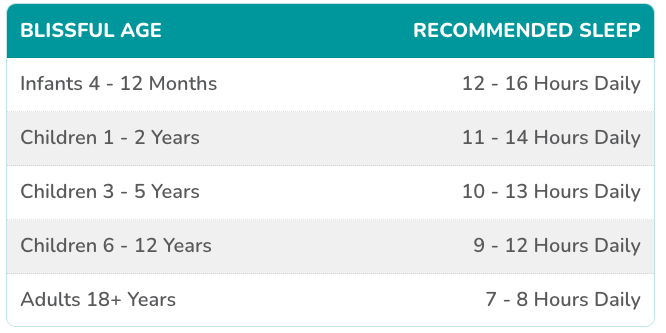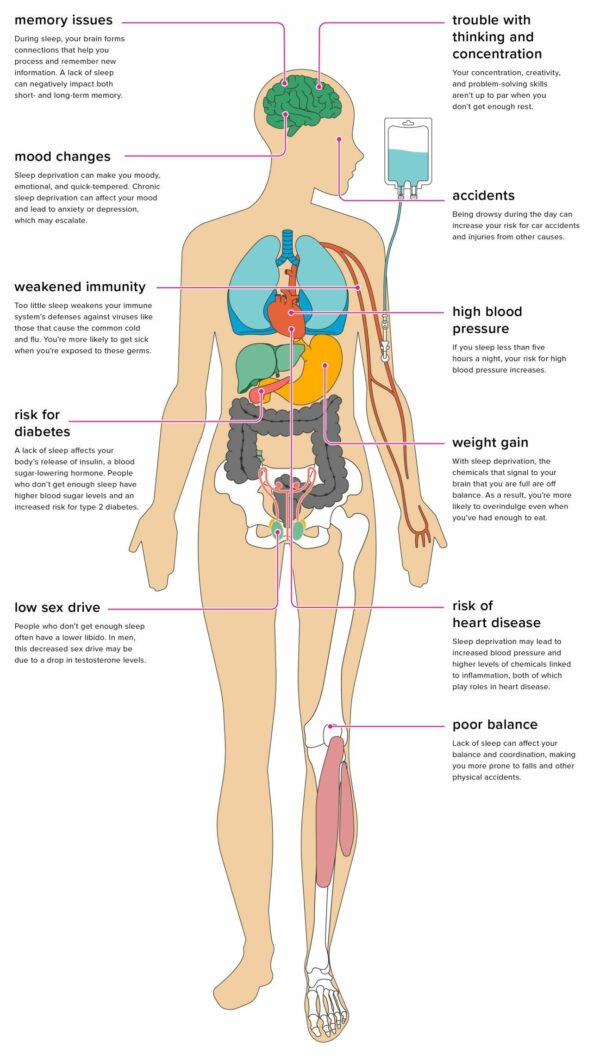WHY SLEEP IS IMPORTANT?
Sleep plays a vital role in overall good health and homeostasis throughout your life. Studies show that getting the right amounts of quality sleep at the right times can help protect your mental health, physical health, quality of life, and safety. Sleep is your body’s time to heal, regenerate, and find balance. The quality of your sleep can and will dictate the quality of your awake life. This becomes even more important during your young/ formative years as your brain is developing, muscles and bones are growing at a fast pace, and immune function is being established. Sleep can affect how well you think, react, work, learn, and respond to life’s stressors.
WHAT MAKES YOU SLEEP WELL?
Multiple factors play a role in preparing your body to fall asleep and wake up naturally. We all have an internal “body clock” that controls when you’re awake and when your body is ready for sleep. Your “clock” typically has a 24-hour repeating rhythm (called the circadian rhythm). Two processes interact to control this rhythm.
GOOD SLEEP = HEALTHY BRAIN FUNCTION = EMOTIONAL BALANCE.
As discussed above, sleep can impact your life in many positive or negative ways. Many studies show that a good night’s sleep can improve cognition & learning. Whether you’re in a business meeting, giving a presentation, learning math, a musical instrument, or how to drive a car, good sleep can help create focus, and increase your ability to learn & recall what you have learned. Cognitive and emotional balance is critical to developing strong, deep, and lasting relationships – sleep’s impact on this portion of your life can have lasting consequences. Children and adolescents who do not get enough sleep have a much higher risk for many health problems, including potential obesity, type 2 diabetes, poor mental health, and sport injuries. They are also more likely to have attention and behavior problems, which can contribute to poor academic performance in school.
HOW DO DREAMS WORK?
The time we all spend dreaming is what helps heal our body and mind. REM-Sleep dreaming appears to make sense of, or often soften the pain of difficult, traumatic, and emotional episodes experienced during the day, offering emotional resolution and peace when you awake the next morning.
REM sleep is a key time when our brain is completely lacking the anxiety-triggering molecule noradrenaline. At the same time, key emotional and memory-related structures of the brain are reactivated during REM sleep as we DREAM. This means that emotional memory reactivation is occurring in a brain free of a key stress chemical, which allows us to re-process memories in a safe, calm environment.
PHYSICAL HEALTH & SLEEP.
Sleep plays an important role in your physical health. For example, sleep is involved in the ongoing healing and repair of your heart and blood vessels, strengthening your immune system, balancing mood, and much more. *Sleep deficiency is linked to an increased risk of heart disease, kidney disease, high blood pressure, diabetes, stroke, etc. – below are some of the major negative impacts and systems that can be affected by poor sleep quality/ lack of sleep:
- Clinical Endocannabinoid Deficiency (CED)
- CNS (Central Nervous System)
- Respiratory System
- Digestive System
- Depressed Immune System
- Endocrine System
- Cardiovascular System
- Poor Insulin Response
- Hormone Imbalance
- Increased Obesity
- Sexual Dysfunction
SLEEP DEFICIENCY RISKS & RECOMMENDATIONS:





